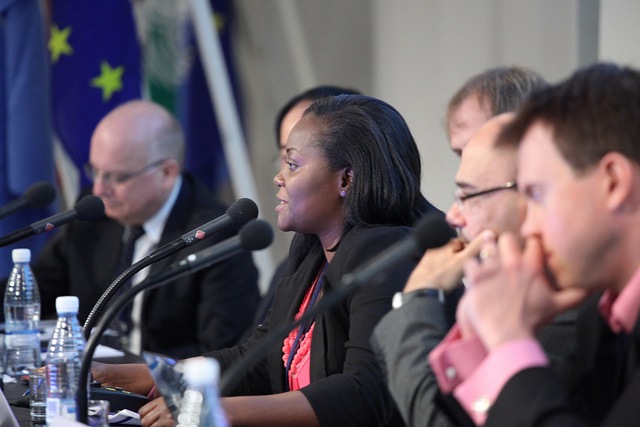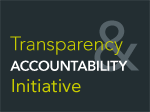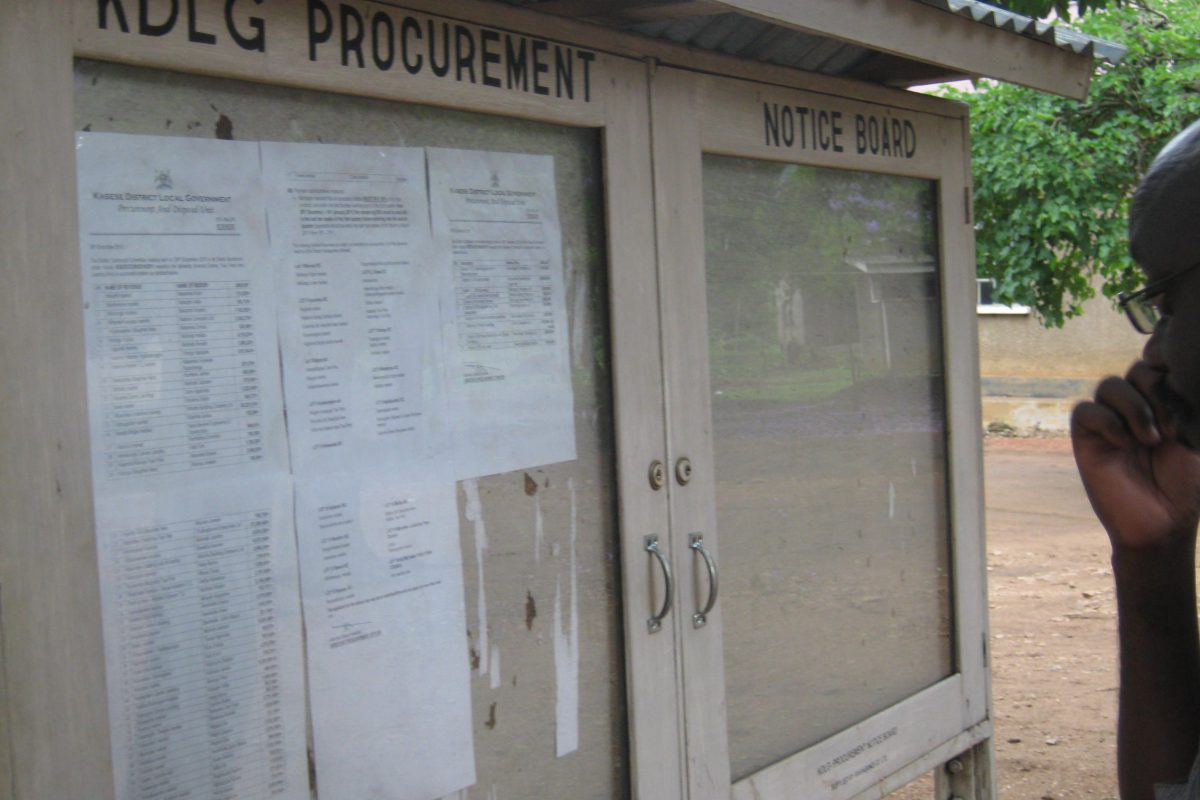What is the price of security? Should it be your online freedom?
By Juliet Nanfuka
Where do human rights and online rights meet? Is there a clash between online freedom and human rights? Is there room for self-regulation? These are some of the questions that a recently concluded online discussions report on Internet freedom in Africa explores.
Participants from Uganda, Kenya and Nigeria used online platforms to discuss these issues over a four week period at the end of 2013.
A key theme that came out of the report is the recognition of the increased numbers of internet users across the continent and parallel to this, increased measures taken by governments on surveillance of citizens. This, in turn, has brought to the fore many questions about freedom of expression and privacy.
Many countries are faced with contradictory policies when it comes to freedom of expression especially when it is placed alongside national security and stability. As a result, freedom of expression is threatened by restrictive legal measures that infringe on the access and sharing of information. In addition to these are the legal permissions granted to governments with regards to accessing information about users. Requests from African governments, although few, appear to be politically motivated according to the Google Transparency Reports.
In light of this, a participant asked a key question that also raises concerns about censorship, “How much can you restrict if those with no restriction can interact with and pass on information to the restricted using alternative methods of communication?” This led to the recognition of the conflict that exists between online freedom of expression and the state. Such was seen in the 2011 politically motivated ‘Walk to Work’ protests in Uganda in which the national communications regulatory authority, the Uganda Communications Commission, instructed ISPs to block access to social networking sites like Twitter and Facebook for 24 hours. More on this can be found here Internet Freedom in Africa Under Threat.
The report, prepared by the Collaboration on International ICT Policy in East and Southern Africa (CIPESA) in partnership with Paradigm Initiative Nigeria (PIN) can be downloaded here.
Improving eGovernment Initiatives: A Global Concern
By Lillian Nalwoga
At the end of May, Finland hosted an international conference to discuss ways of improving eGovernment programmes. In particular, the conference attended by Government Chief Information Officers (CIO) and other officials from across the world reviewed the role of leadership in e-government development.
While noting immense advancements in eGovernment, particularly in the European Union (EU), delegates at the ‘Leading the way in eGovernment development’ conference highlighted numerous factors hampering effective implementation of eGovernment strategies both in developed and developing countries.
According to a May 28, 2013 European Commission press release (see: ‘eGovernment improving but citizens ask for more), almost half (46%) of EU citizens go online to look for a job, use the public library, file a tax return, register a birth, apply for a passport or use other eGovernment services. In addition, 80% indicated that using online public services saves them time, while 76% like the flexibility of the services and 62% said they save money when they use e-services.
Despite these positives, European governments still believe that public perception of governments and public institutions is still low and likely to worsen, stated the press release. Factors cited as constraining eGovernment included: inadequate capacity by some CIOs to implement eGovernment strategies, inadequate trust citizens have in some eGovernment systems, ineffective technological systems, inadequate open, transparent and collaborative efforts by governments, and limited availability of cross-border eGovernment services. According to the UN eGovernment survey 2012, for Africa and other developing regions, the above realities, in addition to the lack of e-infrastructure, mean that eGovernment remains at an elementary level.
Paul Timmers, Director of the Sustainable and Secure Society Directorate, DG Connect at the European Commission, noted that these challenges can be solved by governments’ smart use of new Information Communication Technologies (ICTs), adopting new processes and skills sets. In agreement, Ms. Henna Virkkunen, Finland’s Public Administration Minister, noted that ICT is a key element of every government task and new ways of using latest technology like cloud computing must be explored. Nonetheless, she cautioned that ICT should not be an end itself. Governments need to find ways to use inclusive technology in a manner that benefits them and their citizens, as citizens are demanding for better, user friendly and practical e-services.
In addition, governments also need to include third party users in the design, development and delivery of e-government services such as open data. Mr. Timmers remarked that the “market value of Open Public Data” in EU countries alone is estimated at 140 billion Euros. According to the Open Government Partnership, the market value of Open data can be realised in three main channels – business innovation (making scientific research works more accessible hence driving innovation capacity in fields such as pharmaceutics and renewables); business creation (creating a new market as business can build new innovative applications and eServices based government data); and business efficiency (business and public bodies contributing to ‘smart’ growth by becoming more efficient in tackling citizens’ and customers’ needs by gaining precise and completer insight into citizens’ and customers’ preferences and needs).
But how do governments build positive perceptions of their citizens toward eGovernment? Ian Goldin, Director of the Oxford Martin School and Professor of Globalisation and Development at Oxford University, stated that in order to achieve this, governments have to build trust in the systems; address user privacy concerns; play a stronger role in regulatory frameworks; involve youth and the elderly in digital government and invest in latest technologies as older ones become difficult to work with.
Besides advancements in eGovernment, conference delegates discussed global related concerns such as openness and freedom on the internet as well as data protection. They called for immediate government attention to protecting citizens’ rights while considering the opportunities and benefits of private sector companies that provide online services in the “networked” era where multi-national players like Google, Facebook, Twitter, Amazon, and Yahoo have their own rules on how to handle customer data.
Further, the conference called for common efforts in capacity building for e-government development; sharing best practices to learn from each other; strengthening ethical behaviour in governments to pave way for a culture of openness and the adoption of political will in practicing openness. Other suggestions included the EU issuing directives to all its member countries to open up public data as well as the UN adopting a global framework on promoting openness.
The conference, which took place on May 28–30, 2013, was organised by the United Nations Department of Economic and Social Affairs (UNDESA) and Finland’s Ministry of Finance in collaboration with the European Commission.
More information about the conference is available here.
Africa Counts RoundTable Comes to Kampala
Open Data for improved resource allocation and effective service delivery in Uganda was the theme of the latest Africa Counts roundtable held in Kampala, Uganda on March 13, 2013. Organised by Development Initiatives (DI) and Development Research and Training (DRT), it was the fourth in a series of forums aimed at increasing opportunities for “cross-country, cross-sector and multi-stakeholder” engagements that involve citizens in decision making processes on development issues across East Africa.
The forum explored avenues through which open data can be leveraged to influence resource allocation and effective delivery of public goods and considered potential challenges to the operationalisation of an open development platform in Uganda and possible means of dealing with them. Furthermore, it argued the case for the inclusion of ‘open data’ as a stand alone goal in the post-MDG agenda.
DRT’s Paul Onapa commended the government of Uganda for having in place constitutional guarantees to the right to information, as well the Access to Information Act of 2005.
However, he said, despite having a robust legal framework, access to public information remained limited. “Public data and information management schemes are still largely paper based (available in bulky hard copies and/or online PDFs) and largely aggregated. In addition, this information is scattered in various government departments and only available to a few with adequate contacts,” said Onapa.
He added that open data, with its foundation modelled on digital technology and the internet, offers an opportunity to create a “one-stop portal/platform” where citizens can access, download, and analyse information on matters that affect them, particularly basic services and issues of value for money. With this knowledge, citizens can then meaningfully participate in improving public services.
His remarks were supported by Al Kags of the Open Institute, who stated that a “switched on, participating citizenry” is key to the success of open data as a mechanism for transparency and accountability. The Open Institute has been involved in open government initiatives in Kenya, such as Code4Kenya and africaopendata.org.
Panellists Professor Abel Rwendeire of the National Planning Authority and Margaret Kakande from the Ministry of Finance, Planning and Economic Development) acknowledged the potential of open data to ensure effective resource allocation and service delivery. However, Kakande pointed to a number of challenges being faced by government bodies in embracing open data, such as a lack of legal frameworks on data disclosures.
Edward Ssenyange of the Democratic Governance Facility (DGF) and CIPESA’s Lillian Nalwoga highlighted ways in which citizens’ participation in open data initiatives can be enhanced: placing emphasis on capacity building in the use of ICTs, robust multi-stakeholder engagement (particularly with mainstream media), advocating for key government institutions’ commitment to openness, authenticity and relevance of data.
Currently, a civil society led Open Data platform has been created by the Uganda Open Development Partnership (see OpenDev.Ug and Data.Ug). A key objective is to share development information – on agriculture, education, health, roads sub-sector, etc – and on financial flows including all resource flows to Uganda (aid, domestic revenues, humanitarian assistance, remittances, etc). Making the information accessible and useable by various stakeholders – citizens, government officials, donors, civil society, media and private sector is another objective. CIPESA and DRT are among the founders of the Uganda Open Development Partnership.
Previous Africa Counts roundtable forums include The prospects of East Africa’s natural resource finds (July 2012, Nairobi, Kenya), The state of social protection in East Africa (October 2012, Nairobi, Kenya) and Progress in the Kenya Open Data Initiative (November 2012, Nairobi Kenya).
Outcomes of the Kampala forum will be used to develop targeted messages to inform policy and to stimulate public demand for openness in the conduct of data/information sharing in Uganda.
Transparency and Accountability Community of Practice Launched
The Transparency and Accountability Initiative (T/AI) has launched a community of practice to bring together development partners, civil society organisations and researchers to expand the impact and scale of transparency and accountability interventions. The launch is taking place from February 17-20, 2013 in Cape Town, South Africa.
Participants from across the world are exploring ways of sharing knowledge and support on where, when and how technology interventions can generate change.
CIPESA is excited to be taking part in the launch and understanding how this community of practice could add value to the work we are doing in the transparency and accountability field, in particular ICTs for Democracy and Open Data and eGovernment.
Read more about T/AI and the community of practice here.
Follow the proceedings on Twitter at #TAlearn.
Open Development: The Engine for Uganda’s Advancement
 Press statement to commemorate the International Right to Know Day
Press statement to commemorate the International Right to Know Day
Kampala 28th September – Today is the International right to know Day. The International Right To Know Day began on September 28, 2002, in Sofia, Bulgaria at an international meeting of access to information advocates who proposed that a day be dedicated to the promotion of freedom of information worldwide. The goal of RTK Day is to raise global awareness of individuals’ right to access information and to promote access to information as a fundamental human right. It seeks to highlight the benefits of open, transparent and accountable governments.
On 11-12 September, representatives of diverse civil society organizations (CSOs), government, development partners, private sector, academia and citizens, met at Hotel Africana in Kampala for the Open Development Stakeholders Workshop with the objective of Understanding the Open Development landscape and issues in Uganda, and proposing a programme focus, strategy and design.
Open development is where organisations are using Information technologies, among other information sharing channels, to provide and share information. Open Data enhances transparency and accountability about resources that are available to be invested in development, how those resources are invested and what results they achieve. In the end, all the stakeholders involved in this information sharing chain benefit from this mutually reinforcing ecosystem.
Recognising the positive steps that the Uganda government has taken in Promoting transparency and good governance as enshrined in the Constitution and other regulatory and policy frameworks, the delegates nevertheless underscored the importance of putting in practice the several statutory pronouncements that government has into the access to information act, the constitution, and other government documents. The workshop further highlighted the importance of civil society, development partners and private sector opening up as well; as these efforts work better when all stakeholders with sharable information pull their efforts together.
The conference ended with the establishment of the Uganda open development collaboration and the partners agreed to establishment of a web portal where all sorts of development information; on Agriculture, Health, education, energy, will be displayed so that anyone who needs the data can access it. It will espouse robust data collection, access and use techniques as well as a feedback mechanism that allow interface with the producers and users of information.
The conference also ended with a call to action to all stakeholders to fast track openness as a way of promoting transparency and accountability, thereby improving development outcomes:
The call was to:
(a) The Uganda government to:
- review and repeal policies, regulations, legislation and practices that are restrictive or inconsistent with the above provisions and with regional and international open data standards and that interfere with access to information and development;
- prioritise the development of capacity and awareness, among stakeholders to facilitate open development, access to and dissemination of data and information;
- sign on to, and apply the principles of, the Open Government Partnership;
- ensure transparency of, and access to, public information;
- ensure that the process of data access involves a wide cross-section of stakeholders, including civil society organisations, private sector, and development partners;
- develop and support partnerships with civil society organisations on specific open development initiative.
(b) Uganda’s development partners to:
- Openly share information on funding availability and disbursements in line with the provisions of the International Aid Transparency Initiative (IATI);
- Promote collaboration and networking with civil society organisations and governments in promoting open development;
- Recommit to adoption of the Paris principles on aid effectiveness and the Accra protocol;
- Support efforts that are aimed at promoting transparency of all resources, including budgets, aid, resources about extractive industries, and about private flows.
(c) Civil society organisations in Uganda to:
- Adopt transparency principles as stipulated in the Civil Society Quality Assurance Mechanism (QuAM);
- Strengthen support and collaboration to develop a network of ogranisations that actively advocate for and implement open development;
- Create and use clear feedback mechanisms of engagement in identifying and addressing citizens needs;
- Facilitate community and or citizen documentation of evidence on what works (or not);
- Facilitate partnerships with development partners and government;
- Encourage the development of technologies and applications that innovatively engage citizens and promote community participation in governance and account ability;
- Participate actively in positively influencing uptake of open data and open development policy and governance issues at national, regional and international level.
(d) The private sector, think-tanks and academia in Uganda to:
- Encourage research and innovation creating applications that can promote Open development in Uganda through innovative applications; Create partnerships and collaborations in developing open data platforms;
- Invest in the process of developing open development and open data processes;
- Contribute to analysis of primary data for ease of access to citizens; and
- Explore opportunities for making communication products accessible and at reason able cost to users, in particular communities.
In the spirit of the international right to know day, and in support of the above
proclamations, therefore, partners:
- Agreed to collaborate in an Open Development Initiative that brings together stake holders in data access, analysis, and use, as well as developers of applications;
- Reiterated the need for a multi stakeholder approach to open development building on previous and current experiences and expertise, to minimize duplicating efforts, promote effective resource utilization, and enhance coordinated partnerships; and
- Recognized that openness at the national, regional and global levels is essential for development, democratisation and empowerment.
For further information, Contact
1. Beatrice Mugambe – Development Research and Training (DRT)
[email protected]
2. Richard Ssewakiryanga – Uganda National NGO Forum
[email protected]
3. Lillian Nalwoga – CIPESA [email protected]
4. Charles Lwanga-Ntale – Development Initiatives:
[email protected]
Read the full statement here.





